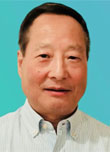Every CDMO Is Perfect Before The Project Starts

By Louis Garguilo, Chief Editor, Outsourced Pharma

On cue for this last segment of our conversation, Jin-an Jiao, Vice President, Process and Analytical Development, Synthekine, starts with a favorite expression.
“To be honest with you,” he says, “I’ve worked with so many CDMOs around the world. When you talk with them about starting a new project, everybody's perfect. Everybody's great.”
“But too often after you sign a contract, you can barely get them to follow their agreed to timelines.”

How do you do that?
One way is to talk directly to the CDMO about that commitment.
Even better, he says, get confirmation from other biotechs who have used that CDMO.
“Get that feedback,” he iterates. “I know if somebody asks me, I'm going to give them an honest opinion.”
Indeed he will. Jiao, Vice President, Process and Analytical Development, Synthekine, a developer of CAR T therapies and biologics, has already provided us some honest opinions, in part 1 and part 2.
Here’s some final frankness for optimal outsourcing of development and manufacturing.
Who’s In This Meeting?
Another piece of advice from Jiao is familiar to readers. He adds a direct action to ensure it is adhered to.
“Regarding your plans for a weekly or biweekly meeting with your CDMO, I would have every detail about these in the SOW [statement of work] or somewhere in the contract.”
“What we really need is for the project manager and subject matter experts at the CDMO in every meeting. They all should attend.”
Why such insistence?
Some questions, he replies, will deal with the administration of the work – so fall within the purview of the PM. More often, the discussion and questions will be technical in nature.
“If their subject expertise is not present, we can’t get answers. What we get is the PM will talk to the SME.”
As much as a delay, this now becomes secondhand communication, and delimits timely follow up and additional inquiries.
Unfortunately, Jiao says, in the past, he failed to take his own advice with a CDMO.
For each weekly meeting, his side gathers as many as 10 professionals, but the CDMO typically has a single representative providing an update (or, we might say, monologue).
“Sometimes when we ask a technical question, this person has an answer,” Jiao says. “Most times, though, he does not have an answer. This has materially slowed down the whole project. It is not productive.
“That’s why my recommendation is whenever you negotiate a contract, you need to make clear within who is obligated to attend the regularly scheduled meetings.”
Window Gazing?
You can expect something will go wrong with any drug development and manufacturing. Despite the element of inevitability, Jiao tries like heck to avoid mishaps.
“If you develop your own processes in house, the tech transfer is critical for the future of the project,” he says. “My recommendation is the client should send their professionals to work side-by-side with the CDMO.”
The next strategy is both a preventative and for when things do go wrong at times, a solvent.
“We have a system of PIP – people in plant,” Jiao says.
However, the PIP strategy does come with a warning label.
“I found out we were sending our people to a CDMO – typically we send two or three people – but they were not getting access to the manufacture flow,” explains Jiao.
“Basically, our people were just standing outside and watching through a window. To me that doesn't make sense.”
He wants his professionals to closely observe all the processes within the actuating of the manufacturing process, “and be involved in case there is an issue.”
Case in point:
“We had a failure with a CDMO some years ago,” he says. “We had our PIP there, but somehow there was a miscommunication between the people working in the manufacturing flow at the plant and our PIP. It caused a total failure of a manufacturing process, and a waste of a lot of money.
“The CDMO didn’t want our people to be in the manufacturing environment. They said they consider their manufacturer process as confidential.
“To me that's a mistake by us.
When we set the contract, we did not specify how the PIP would be allowed to interact.
This happened at a “major CDMO” with which Jiao was utilizing two of its facilities.
“They had a facility in Seattle where I went as a PIP a few years ago,” he says. “I was allowed to work side-by-side with their manufacturing people as they performed the processes.”
“But at this CDMO’s other site in Europe, our PIP wasn’t allowed such access. That’s where the issue occurred.
“So a key piece of advice is to have a contract ensuring the manufacturer allows the client’s PIP to enter their manufacturing flow.”
Analyze This
Executives at biotechs lament bottlenecks at CDMOs seems to originate with analytical services. Jiao agrees.
“I’d say half of the CDMOs I have worked with over the years didn't have a commensurate analytic capability,” he replies.
“Luckily, currently,” he adds, “a few CDMOs I work with on the cell-therapy side and biologics side have very good analytical development capability they provide us.”
Of course, he offers an outlier.
His organization outsourced a test method qualification nearly two years ago, “but they still cannot get a qualification done.”
He is, though, partially sympathetic.
“Remember, we work with a biological product (see part one). Many of these potency assays require cell-based testing methods, and these are difficult. They can be highly variable from location to location, or test to test. This is a challenge for the entire industry.
Notwithstanding such understanding, what sticks in his craw is that at each interval of additional work, “the CDMO says it has to make a change order, meaning they want us to pay more.”
“Often, though, they in fact are the ones who cannot deliver. Now they demand the client pay more to try and complete the job?”
It’s a question that winds us all the way back to the first of our three editorials with Jiao. His inherent reluctance to rely on outsourcing keeps him in pursuit of improved services and service from all his external partners.
